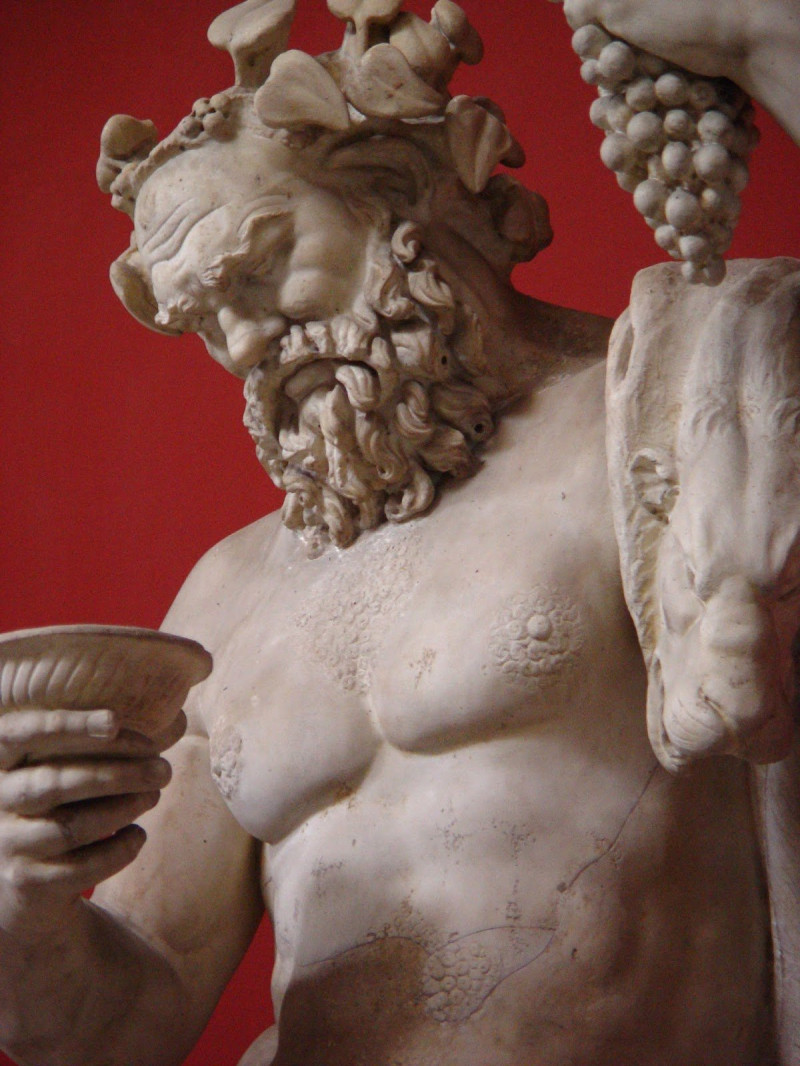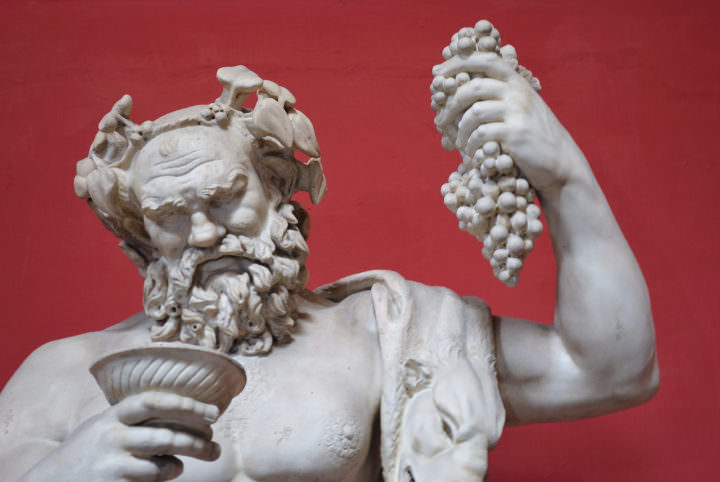Dionysus

In ancient Greek mythology and myth, Dionysus is the god of the grape harvest, winemaking, orchards and fruit, greenery, fertility, insanity, ceremonial lunacy, religious ecstasy, festivity, and theater. The Greeks also refer to him as Bacchus. His wine, music, and ecstatic dance, as Eleutherios ("the liberator"), liberate his followers from self-conscious dread and worry, and subvert the oppressive limitations of the powerful. His thyrsus, a fennel-stem scepter flowing with honey and often entwined with ivy, is both a benevolent wand and a weapon intended to slay those who oppose his cult and the freedoms he represents. Participants in his secrets are said to be possessed and empowered by the god himself.
His origins are uncertain, and his cults took several forms; some are characterized as Thracian by ancient sources, while others are described as Greek. He was either a son of Zeus and Persephone, a chthonic or subterranean aspect of Zeus, or the twice-born son of Zeus and the mortal Semele in Orphic theology. The Eleusinian Mysteries identify him as Iacchus, Demeter's son or husband. According to most sources, he was born in Thrace, moved overseas, and settled in Greece as a foreigner. As a deity of epiphany, he is sometimes referred to as "the god that comes," therefore his "foreignness" as an approaching outsider-god may be intrinsic and important to his cults.
The wine was a religious focus in Dionysus' cult and his earthly manifestation. Wine has the power to alleviate pain, bring joy, and inspire heavenly lunacy. The first driving force behind the formation of theatre in Western culture was Dionysus' festivals, which included the staging of religious dramas recreating his mythology. Dionysus' worship is also a "cult of the souls"; his maenads feed the dead with blood offerings, and he works as a divine communicator between the living and the dead. He is also referred to be a dying and rising god.











